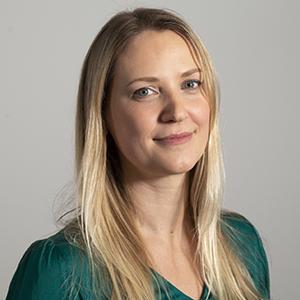Over the last few decades UK workplaces have transformed for the better in many ways. Through initiatives like the Equal Pay Act, increased awareness of the importance of mental health and wellbeing, and more nuanced and informed support around issues like flexible working, the progression of workplace culture has benefited workers across the country.
Having spent years fighting for a more level playing field, there’s little doubt that women have played a major role in making this happen.
The latest data from The Economist’s glass-ceiling index reveals that women in the UK now hold 39% of seats on company boards, a significant increase from 26% in 2016. This progress highlights the continually growing influence of women in the business world and offers a promising outlook for female professionals in the workforce. There is, however, always more to be done and room for further progress.
At Start Up Loans we have seen very encouraging levels of women starting their own businesses, with 40% of loans going to female entrepreneurs since 2012, such as Aoife Doherty, Founder of Floris. Noticing a gap in the market for eco-friendly stationery, Aoife secured a Start Up Loan of £9,000 to launch her own zero-waste stationery company based in Cardiff.
When asked about the challenges women face in business, Aoife told us: “One of the key challenges I think women face in business is gender related bias from investors or other business owners who they are looking to collaborate with. I have found there’soften an undertone of ‘are you capable of this?’ in conversations with men in business, particularly if you’re a young female. I’d encourage women to go for it and have the confidence to pitch their product to customers.”
Meanwhile Caroline Potts, Founder of Ellison Gray Bridal told us that she thinks some women still have a confidence issue when it comes to realising their own potential. Disillusioned with corporate life, Caroline decided to leave her well-paid job in communications and engagement. In May 2020, she took out a £25,000 loan to realise her dream of opening a luxury bridal boutique. Named after Caroline’s two sons, Ellison Gray Bridal offers brides in the North East and beyond a high-end retail experience with bridal gowns to match. She said “I think a lot of women don’t believe they can do it. We often look at other successful women and see them as different to us and use that as a reason to undermine our own abilities. But in reality, we are all just chasing our dreams and working hard.”
What’s certain is many people face challenges in their professional development. One of the issues facing primary caregivers, most commonly women, is the ‘motherhood penalty’. The term refers to the loss in lifetime earnings and workplace biases faced by those raising children as the primary caregiver. In 2016, an Equality and Human Right Commission study found that 77% of mothers said they had a negative or possibly discriminatory experience at work during pregnancy, maternity leave or on return from maternity leave.
Caregiving priorities for men or women alike can lead to reduced work hours, career interruptions and limited advancement opportunities, impacting their financial stability and professional growth. By implementing policies and initiatives that support primary caregivers, provide equal opportunities for career advancement and promote work-life balance, we can work towards dismantling the motherhood penalty and allow caregiving individuals more time for career progression and entrepreneurship.
At Start Up Loans we recognise the importance of representation and want to support more women, minority ethnicities and those from underrepresented socio-economic backgrounds to become founders of their own businesses.
That is why this year we are working hard to make further headway toward our goal of a 50% split for female loan recipients.
In doubling down on supporting entry to business ownership for women and underrepresented groups, we can continue to nurture the progression of the workplace and its policies, increase the number of leaders with different perspectives and ensure that work is a positive experience for everyone.
Share via:








































